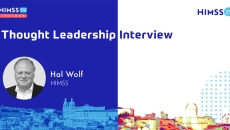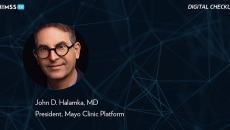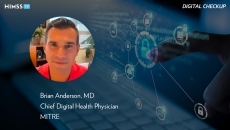HIMSS TV
Technology can help dampen the noise by adding lab values, comorbidities and risk scores to patient information to refine the alert, says Anna Dover, director of product management at FDB (formerly First Databank).
Health equity requires that governments and institutions think not just about interoperability but internet connection in the protection and sharing of information, says Hal Wolf, president and CEO of HIMSS.
HIMSS23
Interoperability rulemaking thinks in terms of standards while AI can translate, says John Nebergall, COO of Consensus Cloud Solutions.
Doctors and nurses who use AI will replace those who don't, says Mayo Clinic Platform President Dr. John Halamka, adding that generative AI has potential to make clinicians better diagnosticians and be less burdened with some administrative tasks.
One area of investment is in the country's digital health infrastructure to support hospitals and primary care centers, says Dr. Cátia Pinto of Shared Services for Ministry of Health.
The Coalition for Health AI is a public-private community effort for best practices, enlisting government observers, says Dr. Brian Anderson, chief digital health physician at MITRE.
Informa Markets will take on management of the HIMSS exhibition, while HIMSS will continue to oversee developing content and programming.
Virtual reality can help address cognitive disorders from ADHD to Alzheimer's to long COVID, says Amir Bozorgzadeh, cofounder and CEO of Virtuleap.
HIMSS23
The strategic plan includes embracing the digital front door and promoting patient monitoring, says Parkland Health SVP and CIO Joe Longo and Dr. Brett Moran, SVP, associate CMO and CMIO.
AI can reduce denials by drawing on the complete picture of the patient, says Niall O'Connor, chief technology officer at Cohere Health.









